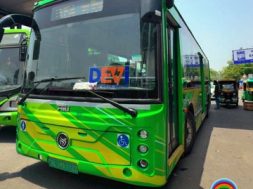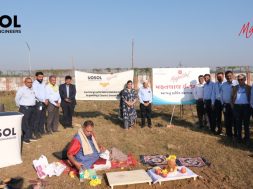
IEA Executive Director discusses opportunities and challenges in Thailand’s energy sector with Deputy Prime Minister of Thailand
During his visit to Thailand on 1 April, IEA Executive Director Fatih Birol was welcomed by Deputy Prime Minister Prajin Juntong and Minister of Energy Anantaporn Kanjanarat.The Deputy Prime Minister thanked the IEA for its long-standing support and underlined that the launch of the Thailand Energy Information Centre is an important step towards better energy policy making. The Permanent Secretary of the Ministry of Energy and other senior officials also attended the meeting.Dr. Birol presented a copy of the IEA’s first policy review of Thailand, Thailand Electricity Security Assessment 2016, to the Deputy Prime Minister.
In Thailand Electricity Security Assessment 2016, the IEA supports the country’s efforts to diversify its generation mix and calls for more ambitious renewable energy targets, especially in solar photovoltaic (PV), and improved energy efficiency measures.“This report is concrete evidence of the close and productive working relationship between the IEA and Thailand, which became an IEA Association country in November 2015,” Dr. Birol said at the launch of the report in Bangkok. “Energy security has been at the core of IEA work for over four decades, so we are delighted to have the opportunity to work with the Thai government on this priority issue.”
The second-largest economy in Southeast Asia after Indonesia, Thailand faces electricity security challenges that will require sustained efforts to diversify the power sector’s fuel sources. Natural gas currently generates two-thirds of the country’s electricity, but domestic gas resources are set to begin depleting rapidly and almost all imports come from a single country, Myanmar, leaving Thailand vulnerable to supply disruptions.Thailand’s 2015 Power Development Plan sets a timetable for developing new generation to meet growing electricity demand. The share of gas-fired generation is projected to fall to 37% of electricity in 2036. To offset this decline, coal’s share is expected to increase from 20% to 23%, renewables will double to 20% and hydropower will rise from 8% to 10%. The plan is consistent with Thailand’s pledge to the COP21 UN climate negotiations in Paris to reduce power-related carbon dioxide emissions by 20% compared with “business as usual” by 2030.
Since the Paris agreement foresees stricter measures over time, Thailand Electricity Security Assessment 2016 urges Thailand to ensure that the plan is kept consistent with future climate change obligations as well as local pollution reduction.The report welcomes Thailand’s focus on renewable energy, but recommends more ambitious targets, especially for solar PV, and better financing for solar and wind technologies. It notes that policies could be improved, including simplified support programmes and a streamlined application process.Greater energy efficiency would also enhance electricity security. By 2036, Thailand’s Energy Efficiency Plan seeks to save nearly 90 terawatt-hours of electricity, roughly equivalent to Pakistan’s current consumption, through stricter standards as well as improvements in the industry and building sectors. The report suggests expanding the range of products covered by the tighter standards and making more measures mandatory.
Other recommendations in the report include clarification of responsibilities among government agencies, including enhanced capacity for the Energy Regulatory Commission with a distinct technical expertise on transmission grids, plus a cost-benefit analysis to assess grid development in renewable-rich areas.














